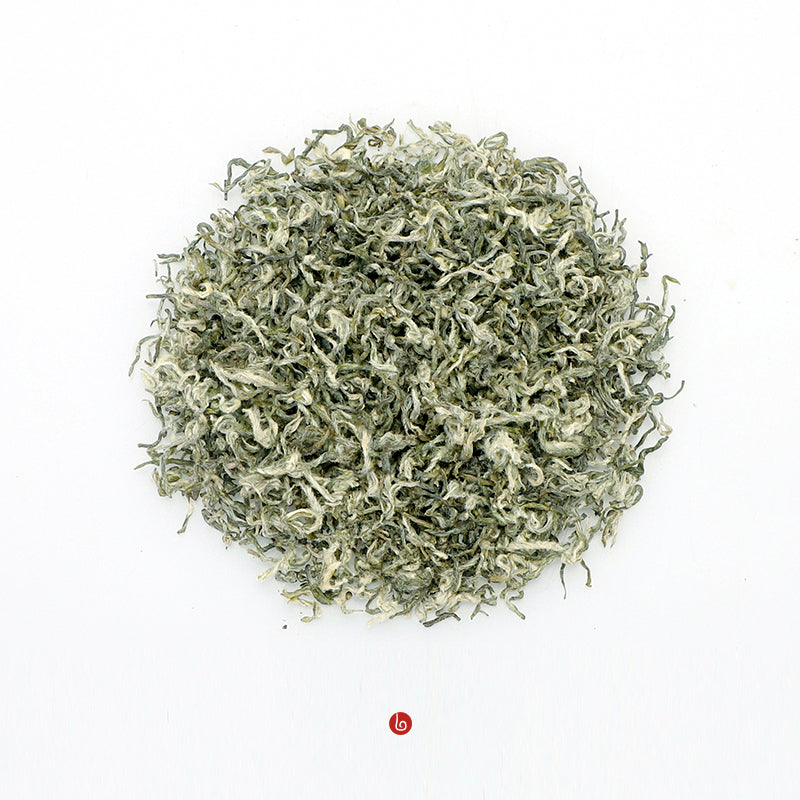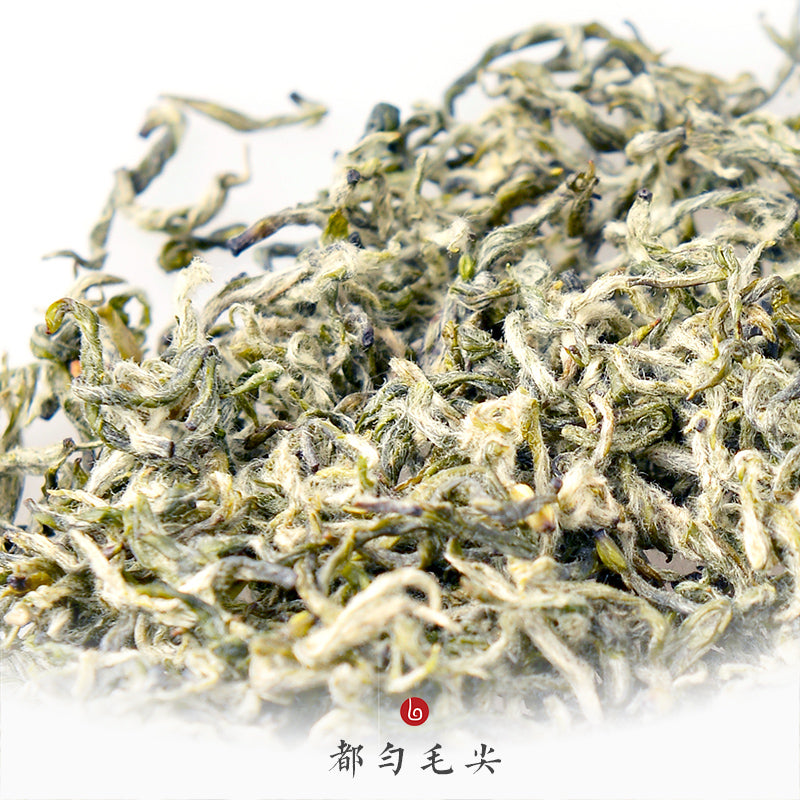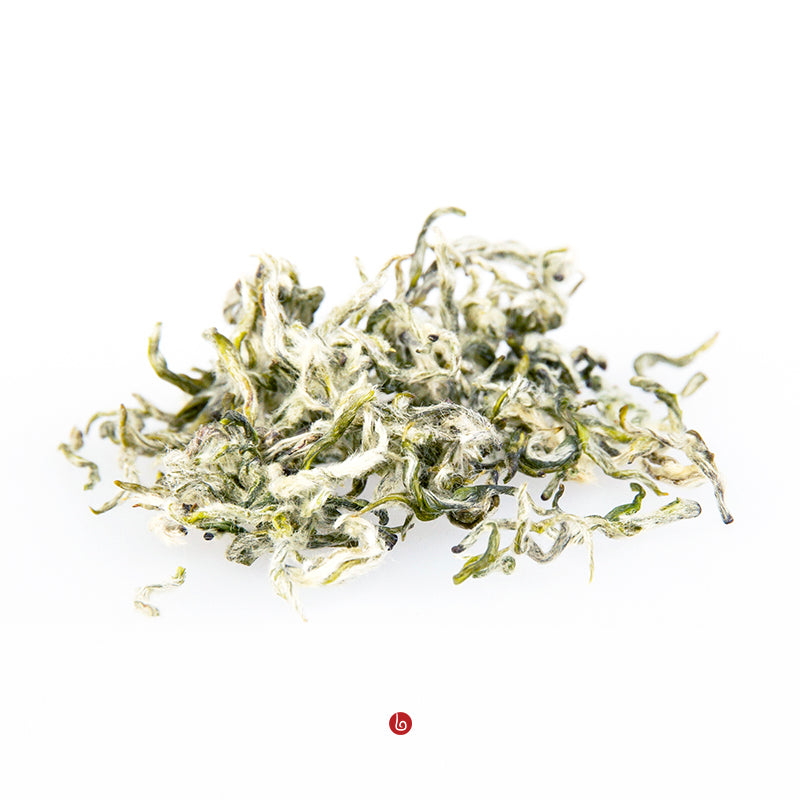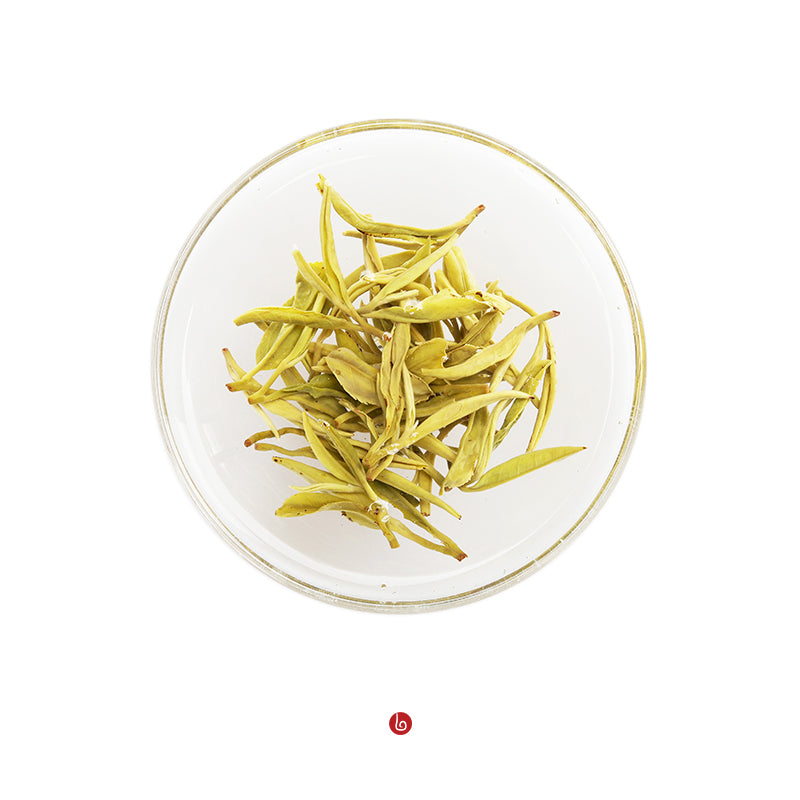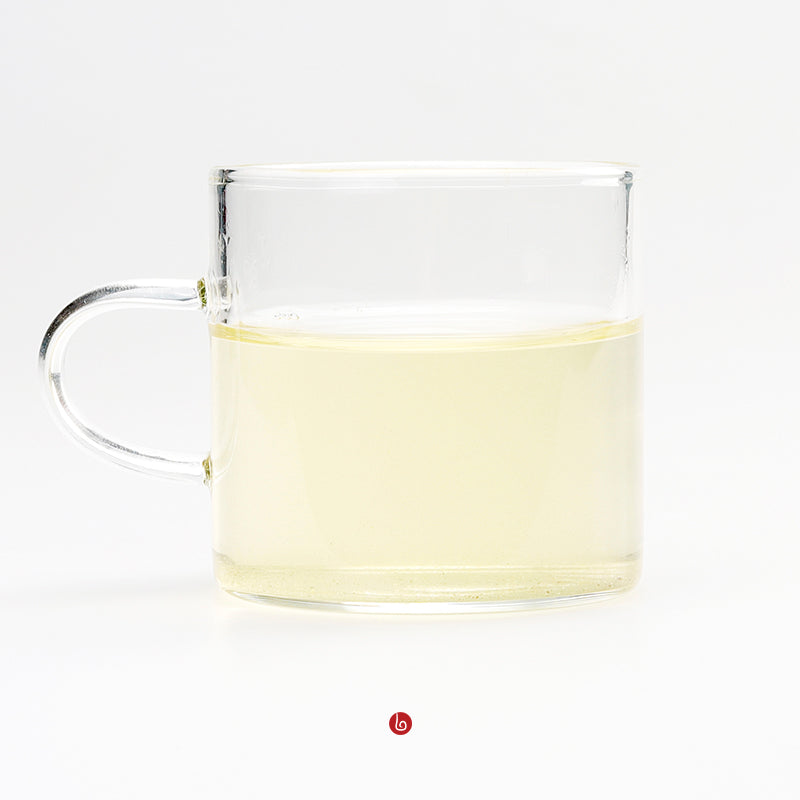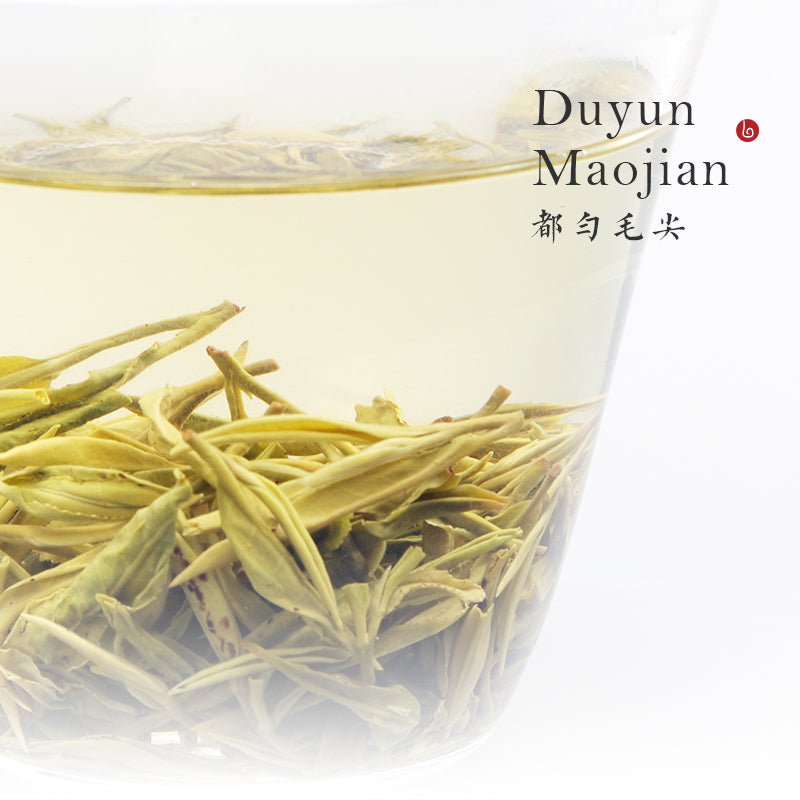eatteago
DUYUN MAOJIAN
DUYUN MAOJIAN
Couldn't load pickup availability
Duyun MaoJian: The Sweet Spirit from China's Deep Mountains
Introduction to Duyun MaoJian
Duyun Maojian stands as one of China's esteemed top ten teas, a testament to its enduring quality and rich history. Since the late Qing Dynasty, it has been celebrated as Guizhou's top renowned tea. In those times, it was revered under names like "Fine Maojian" and "White Maojian." Its reputation soared further in 1915 when it garnered a Gold Award at the Panama-Pacific International Exposition. In 1956, Chairman Mao Zedong, after tasting it, bestowed the name "Duyun Maojian," which it proudly carries to this day.
Origin
The birthplace of Duyun Maojian lies in the Tuanshan village and Shaojiao village areas of Duyun City, Guizhou Province. Here, deep valleys and lush forests surround crystal-clear streams running through the valleys. The high-altitude tea gardens, perched over 1,140 meters above sea level, experience significant diurnal temperature variations, fostering slow and meticulous tea tree growth. This unique environment has preserved the indigenous Maojian tea varieties, endowing them with unparalleled quality under the nurturing embrace of mountain mists.
However, in modern times, due to the quest for yield, 95% of Tuanshan's tea gardens have been replaced with high-yield extraneous varieties. While these newcomers boast early budding and rapid growth, their flavor pales in comparison to the original Duyun Maojian. Our commitment to preserving these original strains ensures that the unique aroma, rich tea liquor, and sweet aftertaste—a truly unforgettable experience—endure.
Crafting
Our traditional native Duyun Maojian is harvested with utmost care, selecting only the plumpest buds after their winter dormancy and only on clear days during the first growing season. Each bud is handpicked—a process so meticulous that even the most skilled tea pickers can gather no more than 20,000 buds a day. It takes between 55,000 to 60,000 of these precious buds to produce just half a kilogram of our tea, a testament to its exceptional quality.
Authentic Duyun Maojian demands traditional hand-frying to unlock its full flavor. We adhere to this time-honored method, using firewood to heat iron woks and manually processing the tea—ensuring constant contact between hand and tea. This meticulous process shapes the tea into its characteristic curly, downy form and locks in its exquisite aroma.
Today, hand-frying faces numerous challenges. Despite Tuanshan's centuries-old tradition of hand-frying, only a handful of artisans possess the skill to produce authentic Duyun Maojian. It requires years of dedication and experience to master this craft. The special process yields only about 100 grams of tea per 50-minute session, leading many producers to opt for mechanized methods that sacrifice quality for quantity.
Tasting
Authentic native Duyun Maojian deviates from the typical bright green hue. As recorded in "The Chinese Tea Classic", the finest Duyun Maojian exhibits a "three greens and three yellows" characteristic: greenish-yellow leaves, a greenish-yellow brew, and a bright yellow-green tea base. The tea liquor dances with a dense luminous layer of tea hairs, adding an ethereal beauty to the experience.
Qualified green tea should never have grassy notes. Our traditional Duyun Maojian exudes sweet floral aromas with hints of grains and seeds—offering a multi-layered fragrance. Each sip delivers a surprising burst of flavor, blending the sweetness of wild fruits and grains with a rich, smooth texture. The lingering sweet aftertaste evokes the tranquility of a mountain retreat.
Preservation
Unlike other green teas, our traditional Duyun Maojian does not require low temperatures for storage. It boasts an extended shelf life at room temperature. With proper sealing, its sweetness and mellowness deepen over time. The longer it ages, the more it transforms into a sweet, soothing elixir—a testament to time's gentle touch.

